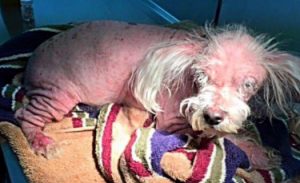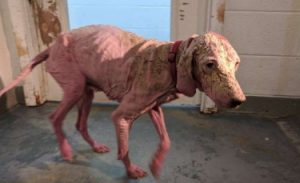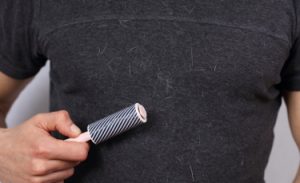
perianal fistula (more common in anus) is a chronic disease that affects many dogs. It is defined as an injury affecting the dog’s anal area.
is a serious and painful disease that can extend to the anus and rectum. This disease is also known as anal fistula, especially in German shepherds and older dogs.
what is perianal fistula?
perianal fistula is a painful and difficult pathology. This is an abnormal anal canal connected to its surroundings. As we said, it affects the anal area, but it also extends a few centimeters above the dog’s skin.
disease is divided into three stages:
Stage 1: occurrence of single ulcer lesion stage 2: perianal ulcer The main causes are immune system dysfunction, anal or sebaceous (perianal) infection and heredity (80% of the affected dogs are German shepherds) Anal moisture, food allergy, certain hormone conditions, such as hypothyroidism, and poor hygiene in dogs (this is very common in dogs aged 4-7 years)… The symptoms of
perianal fistula are usually visible. We note
Anal pain hemorrhagic fecal incontinence excessive licking around the anus may lead to self mutilation, loss of appetite and weight loss, alternating diarrhea and constipation, ulceration and local bleeding around the anus Expose the characteristic smell caused by infection… The diagnosis
diagnosis is based on the dog’s report and observed signs. Veterinarians may need to view the colon through a camera (colonoscopy) to verify the diagnosis of the disease. Then, if a tumor is suspected in the anal area, a biopsy can be performed.
treatment
the current treatment is mainly based on immunosuppressive and antibiotic medical treatment, and the progress of the disease is monitored regularly. Sanitary treatment is also required, including shaving and cleaning the perianal area. Betadine or chlorhexidine should be used for local antibacterial treatment. The diet of dogs can also be changed to hypoallergenic food to prevent and avoid allergies.
immunosuppressant based treatment may lead to hair loss and liver diseases, so liver parameters should be monitored regularly.
Surgical treatment should be considered only after medical treatment is completed. The main purpose of the operation is to remove the affected tissue and prevent it from spreading to the animal’s skin. However, surgery may cause some complications, such as fecal incontinence or anal shrinkage, which explains why veterinarians only use it in certain or very serious cases.
perianal fistula is a painful and difficult pathology. Many breeders choose to euthanize their dogs to avoid seeing their pain and avoiding the high cost of treatment. Please note that your pet health insurance may be helpful. This is a disease that requires great patience and perseverance, but lasting treatment is possible. “











